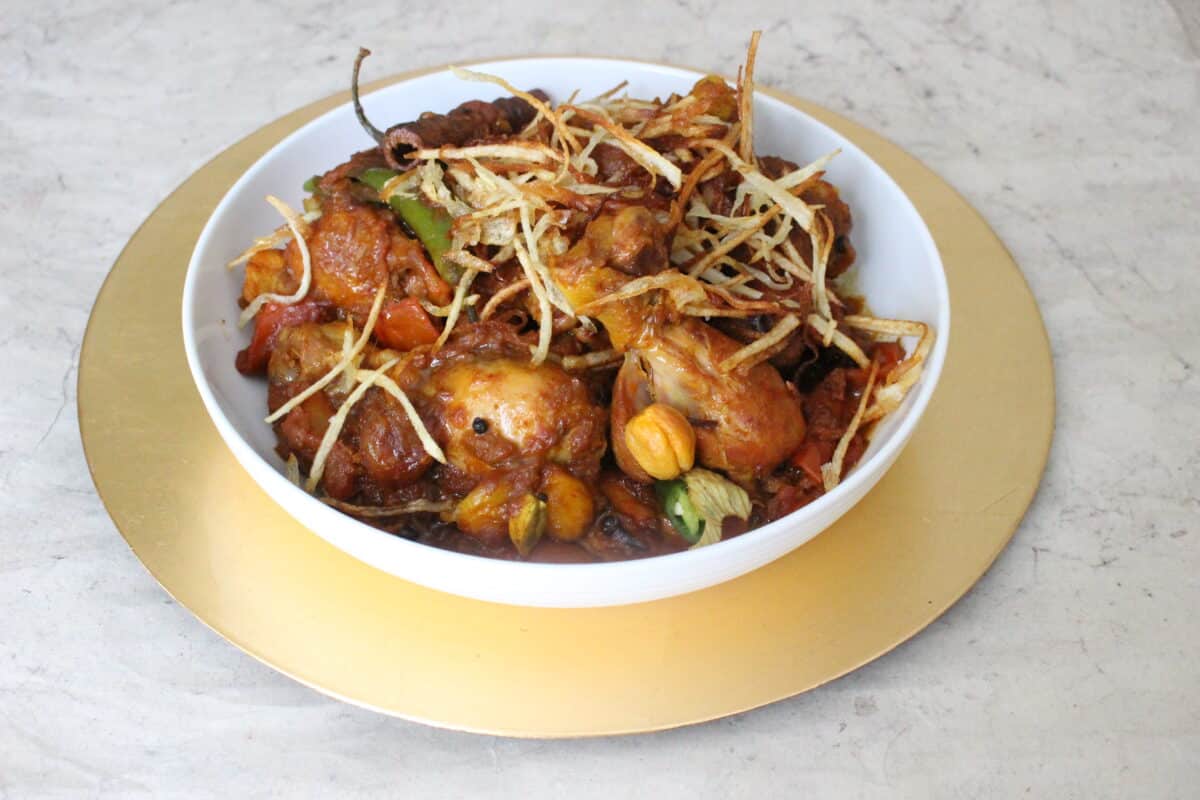Sali murghi, a traditional Parsi delicacy with historical significance, is included in the patra nu bhonu, often a 9-course meal served on banana leaves that is commonly offered at sit-down wedding feasts. Parsi cuisine is influenced by Persian and Indian cuisines, as well as our colonial background of British and Portuguese foods. The result is a vibrant and hearty feast that celebrates our cultural identity.
While our recipes are unique, we have incorporated and altered elements of these culinary traditions, whether in part flavour or cooking techniques, like adding fruits and nuts, coconuts and chillies, or baking puddings and custards, or what we call “bakes”—white sauce-based dishes finished in the oven—this blending of flavours creates a rich tapestry of taste that reflects our community’s distinct heritage.
Sali murghi jardaloo sathay, is a match made in heaven for anyone who enjoys Parsi food flavours. Cooking this recipe to perfection entails recreating the rich flavour and texture of this distinctive dish. The whole depth of its flavour can be tasted in a bite when you combine the crunch of crisply fried shoestring potatoes with the thick, well- balanced gravy and a succulent piece of the bone-in chicken that is eaten with a small piece of freshly cooked, paper-thin rotli. The tangy-sweet apricot rounds of this ever-so- delicately spiced dish with a fibrous, glossy gravy are almost impossible to adequately describe. The apricot is specific to the khubani, a small, dry, pale, camel-like coloured fruit that is sold with its kernel. You may cook this with chunks of bone-in lamb, goat, or mutton instead of chicken, but it is the bones that help the flavours to meld.
The potatoes can be thinly shredded by a machine or hand-cut; they must be deep-fried to a golden brown and well-seasoned with salt; it’s the reward for this dish. Gently cooking the hard, dry apricots with the meat or chicken softens the tangy-sweet fibrous fruit, turning the gravy into a delicious sauce. Some prefer to soak the dry apricots in warm water before adding them at the end, but this dilutes the flavour and prevents the gravy from thickening as it should, losing the essence of why one cooks
with dry apricots in the first place.
The combination of meat and fruity tastes is not unique to Parsi cuisine; Western cultures regularly pair oranges and marmalade with duck and goose, prunes and apples with pork, and cherries with chicken, pork, cranberries, and turkey. Many individuals appreciate the sweet and salty flavours, which may be considered acquired tastes in other cultures. ![]()

